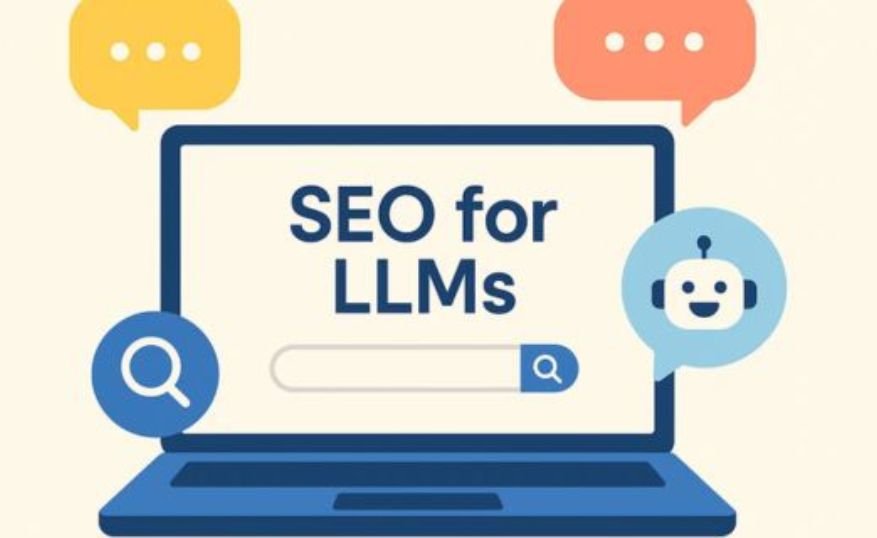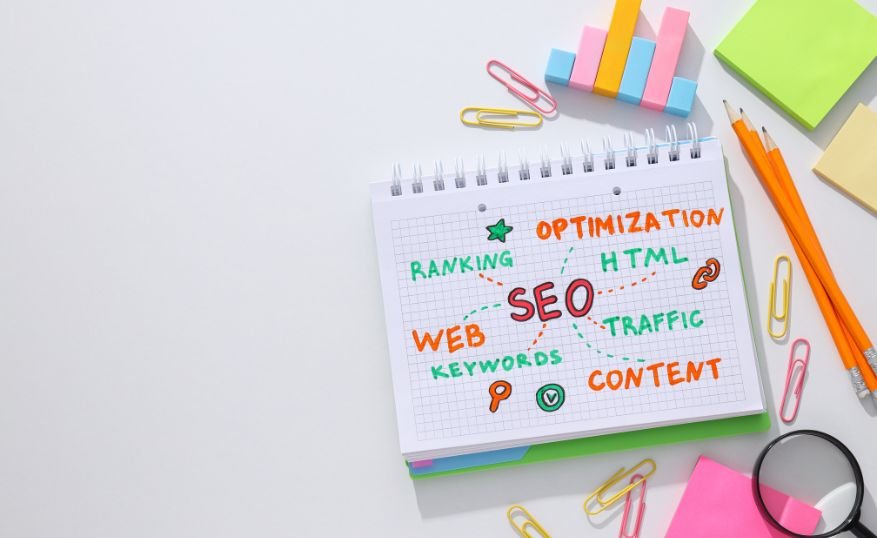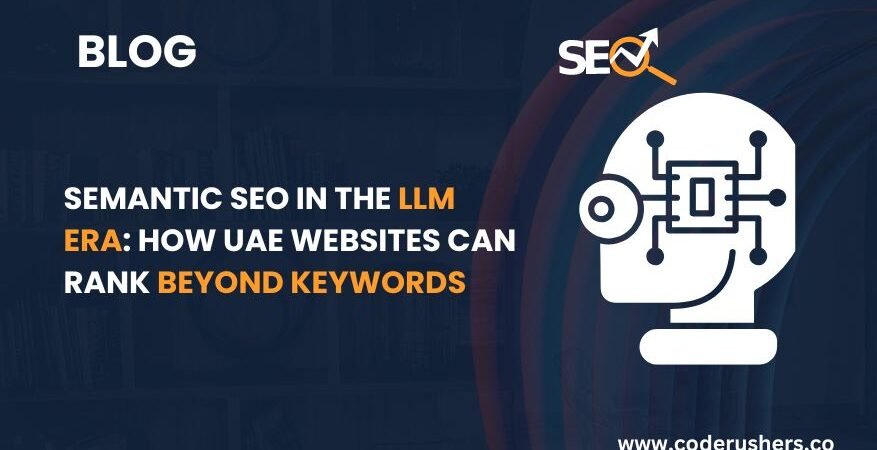Gone are the days when stuffing your page with keywords was enough to rank on Google. Semantic SEO UAE is all about meaning, context, and understanding what your audience is actually searching for.
And with AI tools like ChatGPT and Google’s BERT shaping search results, it’s no longer about matching exact phrases; it’s about meeting intent.
In the UAE, this shift matters even more. Your audience is diverse, multilingual, and mobile-first. Whether they’re searching in Arabic or English, they expect Google to “get” what they mean and your content has to keep up.
In this blog, we’ll break down how Semantic SEO, powered by LLMs and AI, can help your website rise above the noise, connect with real users, and rank smarter, not harder.
Why Semantic SEO Matters in the UAE?
Search engine optimization UAE is not your average digital playbook. You’re dealing with:
- Multilingual searches (Arabic, English, Hindi… sometimes all at once)
- Diverse expat-driven audiences
- Fast-evolving eCommerce, real estate, and government sectors
In this region, semantic SEO UAE becomes your bridge across languages, dialects, and regional nuances.
Think about this: A user searches “best Iftar buffet” in Sharjah. Google knows they’re looking for local, timely, culturally relevant content. Not just a list of restaurants, it wants zero-click search readiness, reviews, location info, and maybe even prayer-friendly environments.
If your content isn’t answering that level of intent, you’re invisible.
LLMs and Their Role in Modern SEO

Language models in SEO are changing the game, and it all started with the Google BERT update. BERT helped Google understand the meaning behind words by analyzing sentence structure and how terms relate to each other, rather than just matching keywords.
Now, we’ve moved even further. Today’s models like GPT-4, are powered by advanced machine learning for SEO. These models don’t just “get” what you’re saying, they recognize patterns, figure out what people really mean, and can even guess what someone’s searching for before they’ve finished typing.
So if you want your content to show up—especially in those new AI-powered search results—it needs to do more than just exist. It has to be helpful, relevant, and actually give people the answers they’re looking for.
How do LLMs influence your rankings?
- They summarize your pages in Google’s SGE (Search Generative Experience).
- They prioritize EEAT signals (Experience, Expertise, Authoritativeness, Trust).
- They favor structured, topical content over keyword dumps.
Apply These LLM SEO Techniques to Stand Out:
- Answer real questions clearly: Use FAQ-style sections and headings that match what people actually search for (like “How to get a business license in Dubai?”).
- Use structured data markup: Add code that helps Google understand your content better (like marking up reviews, events, or FAQs for rich results).
- Apply entity-based SEO UAE techniques: Mention well-known names, places, and topics related to your industry (like “Dubai Expo 2025” or “Abu Dhabi Department of Health”) so search engines connect your content to relevant subjects.
Apply AI SEO Strategies In UAE Websites

Most of the UAE brands are now leaning into AI, not just to save time, but to get ahead in a market where search behavior shifts fast and audiences expect content in both Arabic and English.
Whether you’re running an e-commerce store, a real estate portal, or a tourism brand, AI tools are now part of the SEO playbook. But it’s not just about automating tasks, it’s about using AI to uncover what your audience actually wants, spot gaps your competitors missed, and scale content that aligns with both semantic search and local user behavior.
Here’s how smart teams in the UAE are doing exactly that.
1. Smarter Content Creation with LLMs
Forget generic content. Use LLM-based tools like ChatGPT, Jasper, and Writer for content optimization with LLM, helping you create multilingual, culturally relevant blogs, landing pages, and FAQs. These tools understand tone, style, and context, so your Arabic and English content isn’t just translated, it resonates.
2. Keyword Intent Mapping with AI Tools
Tools like Clearscope, MarketMuse, and Frase do more than hand you keywords. They show you what people are really looking for. You’ll learn whether your audience wants a how-to guide, a comparison, or a service page. This helps you stop guessing and start creating pages that match search intent mapping, which is a critical piece of semantic SEO UAE.
3. Competitor Audits and Gap Analysis
With AI tools like SurferSEO and SE Ranking, you can run detailed audits of top-performing UAE competitors. They’ll show you what topics you’re missing, what headings your rivals are using, and how to outrank them with better content structure.
4. Real UAE Use Case
A Dubai-based travel company used Jasper AI to generate blog content for different customer segments. Tailoring tone and topics for Indian tourists, Emirati families, and British travelers.
The result? Higher engagement, better rankings in both Arabic and English search results, and a 40% boost in organic leads in just 3 months.
Master NLP-Based SEO Content

When your content sounds like how people actually speak and search, Google is more likely to understand it and rank it higher. That’s the goal of using NLP. Here’s how to write content that feels natural and still performs well in search:
1. Use Semantic Variants to Cover Related Terms
Instead of repeating the same keyword 10 times, think broader. Google understands that “lawyer in Dubai,” “legal advisor UAE,” and “Sharia law expert” can mean similar things especially when seen in the right context. This approach boosts your contextual relevance and helps your content show up for a wider range of related searches without keyword
stuffing.
2. Structure Content for Quick Answers
People (and AI search features like Google SGE) love content that gets to the point. Use question-based headings, bullet points, and short, clear answers that show up well in featured snippets and voice search results.
For example:
Instead of saying, “Our Dubai law firm offers a range of legal services…”, ask, “What legal services are available in Dubai?” and answer it clearly right under the header.
3. Analyze What’s Already Ranking in the UAE
Use tools like Frase, SE Ranking, or SurferSEO to study top-ranking content in your niche. Look at their structure, tone, and keyword usage. These tools also suggest missing topics and common questions people are asking.
Optimize for Google SGE Optimization UAE
In the UAE, where most users are mobile-first and expect instant answers, showing up in search isn’t just about being on page one anymore. With Google now rolling out AI-generated summaries, your content needs to stand out in those snippets too.
That’s what Google SGE optimization UAE is all about, making sure your pages are clear, trustworthy, and structured in a way that AI can easily pull from.
What helps?
- Clear headings and subheadings (H2s and H3s that mirror real questions)
- Structured data markup for events, products, FAQs, etc.
- Author bios that show real experience and expertise (show EEAT signals)
Entity-Based SEO UAE and Topical Authority SEO

If you want Google to treat your site like more than just “another blog on the internet,” you’ve got to show that you know your stuff and that’s where entities and topical authority come in.
Think of entities like familiar faces to Google. When you mention well-known names, places, or concepts like “Dubai Expo,” “Emirates ID,” or “RAK Free Zone” and tie them together in a meaningful way, Google starts to see your content as legit. It understands what you’re talking about and knows it’s relevant for people searching in the UAE.
Now, topical authority is a bit like street cred. One blog post won’t cut it. But when you cover a topic from all angles, like a full guide, supporting articles, FAQs, case studies—Google goes, “Okay, they really know this space.” That’s how you become the site people (and search engines) trust.
How to use entity-based SEO in the UAE?
- Mention local brands, government agencies, events, and landmarks relevant to your niche.
- Use schema markup to tag those entities (like Organization, Event, LocalBusiness).
- Include both English and Arabic terms when it makes sense—this shows you’re contextually relevant to bilingual users.
How to Build Topical Authority SEO UAE?
- Create content clusters around key topics (e.g., UAE business setup, Dubai tourism, UAE real estate)
- Cover subtopics in depth, like legal processes, government fees, or expat benefits.
- Use internal linking to connect all those related pieces together, showing Google that your content forms a complete picture.
Future SEO Trends 2025 UAE
Here’s what’s coming and how to get ahead:
- Voice and visual search: Especially in mobile-first Emirates like Sharjah and Fujairah
- Hyperlocal SEO: Like “salon near Khalidiya Abu Dhabi” vs. “best salon UAE”
- Bilingual content scaling: Using AI to auto-translate while preserving tone
Most importantly, focus on E-E-A-T signals, rich content, and constant updates. The LLMs aren’t sleeping, and neither should your SEO.
Conclusion
The brands that adopt semantic SEO UAE are the ones that will lead the digital conversation tomorrow. Because in this new era of SEO, it’s not about how much you say. It’s about how deeply you understand what your audience needs.
Want to Get Found on Google the Smart Way?
Code Rushers helps UAE businesses create content that actually gets seen. We don’t just chase keywords, we build content that Google understands and your audience connects with.
Book Your Free Strategy Call Today!
Frequently Asked Questions
Traditional SEO focuses on matching keywords. Semantic SEO goes deeper, it focuses on understanding what the user means, not just what they type.
Yes. AI-generated summaries (like in Google SGE) pull from content that’s well-structured, clear, and trustworthy. That’s exactly what semantic SEO is built for.
Structure your content so it’s easy for AI to summarize—think Q&A formats, bullet points, and clear answers. Also, make sure your info is accurate, trustworthy, and relevant to local audiences.

